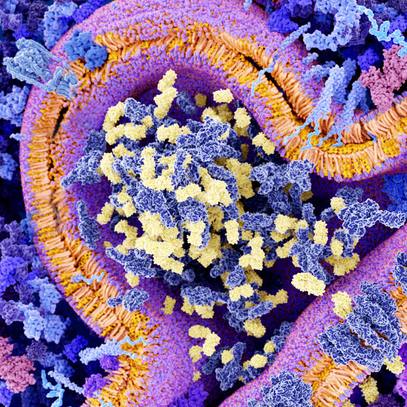-
Biotherapeutics
Science Saturday: A regenerative reset for aging
Regenerative medicine could slow the clock on degenerative diseases that often ravage the golden years, a Mayo Clinic study finds. Life span has nearly doubled since the 1950s, but health span — the number of disease-free years — has not kept pace. According to a paper published in NPJ Regenerative Medicine., people are generally living longer, but the last decade of life is often racked with chronic, age-related diseases that diminish quality of life. These final years come with a great cost burden to society.
Researchers contend that new solutions for increasing health span lie at the intersection of regenerative medicine research, anti-senescent investigation, clinical care and societal supports. A regenerative approach offers hope of extending the longevity of good health, so a person's final years can be lived to the fullest.
"Diverse aging populations, vulnerable to chronic disease, are at the cusp of a promising future. Indeed, growing regenerative options offer opportunities to boost innate healing, and address aging-associated decline. The outlook for an extended well-being strives to achieve health for all," says Andre Terzic, M.D., Ph.D., a Mayo Clinic cardiologist and the senior author. Dr. Terzic is the Marriott Family Director, Comprehensive Cardiac Regenerative Medicine for the Center for Regenerative Medicine and the Marriott Family Professor of Cardiovascular Research.
Regenerative medicine is a new field of research and practice that is shifting the emphasis from fighting disease to rebuilding health. Mayo Clinic's Center for Regenerative Medicine is at the forefront of this movement, supporting research into new ways of delaying, preventing or even curing disease.
Research advancing regenerative options
Research has increased understanding of technologies that target and remove so-called "zombie" cells that accumulate with age. Zombie cells, also known as senescent cells, secrete harmful proteins and chemicals that contribute to disease and failing health. When cells become senescent, they no longer divide and differentiate, and they lose their ability to repair diseased tissue.
"Advances in anti-senescent and regenerative technology give hope of extending life span and living the older years disease-free," says Armin Garmany, first author and an M.D./Ph.D. student in the Regenerative Sciences Track in Mayo Clinic Alix School of Medicine.
New regenerative interventions on the horizon show promise for addressing chronic diseases such as cancer, heart disease and diabetes. For example, advances in regenerative immunotherapies, such as chimeric antigen receptor-T cell therapy unleash the body's ability to recognize and destroy some cancers.
"The clinical readiness of regenerative therapies is maturing in age-related disease," says Satsuki Yamada, M.D., Ph.D., a Mayo Clinic cardiologist and co-author of the study. "The evolving knowledge in regenerative sciences is offering tools to halt or reverse refractory disease progression, transforming the goals of disease management from care to cure."
Clinical care poised to deliver regenerative care
The rise in electronic health records and artificial intelligence provides new ways of sifting through vast datasets and pinpointing regenerative therapies matched to individual need. This could delay the onset of chronic diseases that surface later in life. Targeting regenerative procedures to a multiplicity of chronic age-related diseases could be a powerful way to close the gap between health span and life span.
"The regenerative model of care is poised to advance a perspective of disease-free longevity, transforming current practice in patient care," says Dr. Terzic. "Effective implementation of next-generation medical innovation will be accelerated by augmented decision-making."
Societal supports help extend a healthy life
Public health initiatives could contribute to health longevity. For example, banning public smoking, enforcing Nutrition Facts labels and promoting vaccinations could lead to healthier lives, and delay or prevent degenerative conditions that arise later in life.
In addition, addressing social determinants of heath — conditions in the environment where people live — could factor into preventing or delaying disease.
"Childhood adversity, social alienation, maladaptive socioeconomic status and compromised health care access are all associated with health inequality and reduced life span," says Garmany. "Addressing these issues is at the core of preventing disease."
Worldwide demographics place life expectancy at 73, but the average age of chronic disease onset is 64. That gap between health span and life spans could be closed with proper public policy initiatives and application of new regenerative and anti-senescence discoveries to clinical care. Breakthroughs that extend life expectancy could potentially be matched with more years of good health.
###











